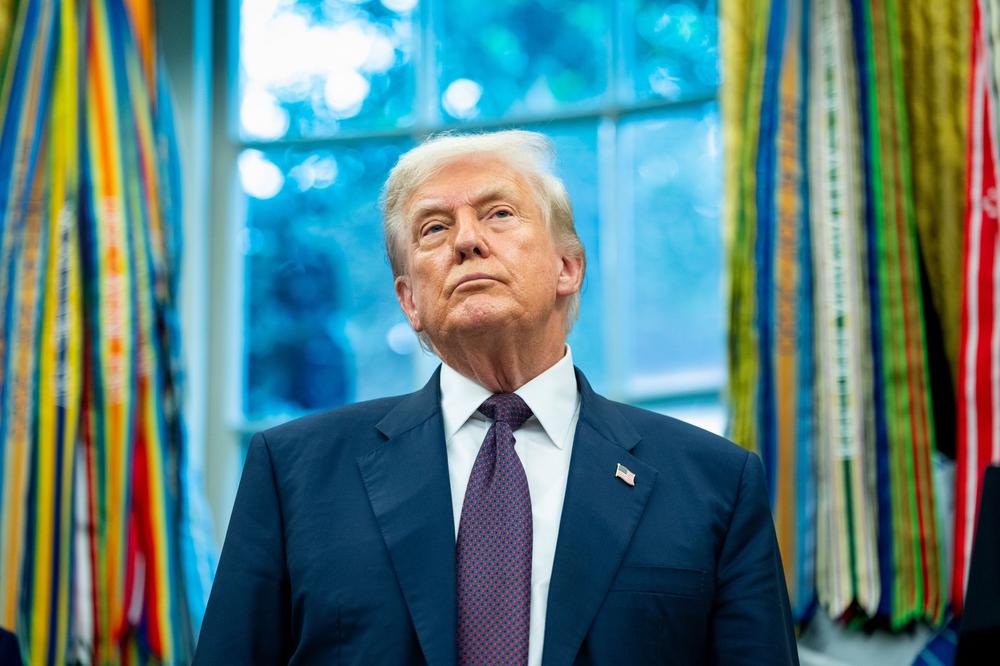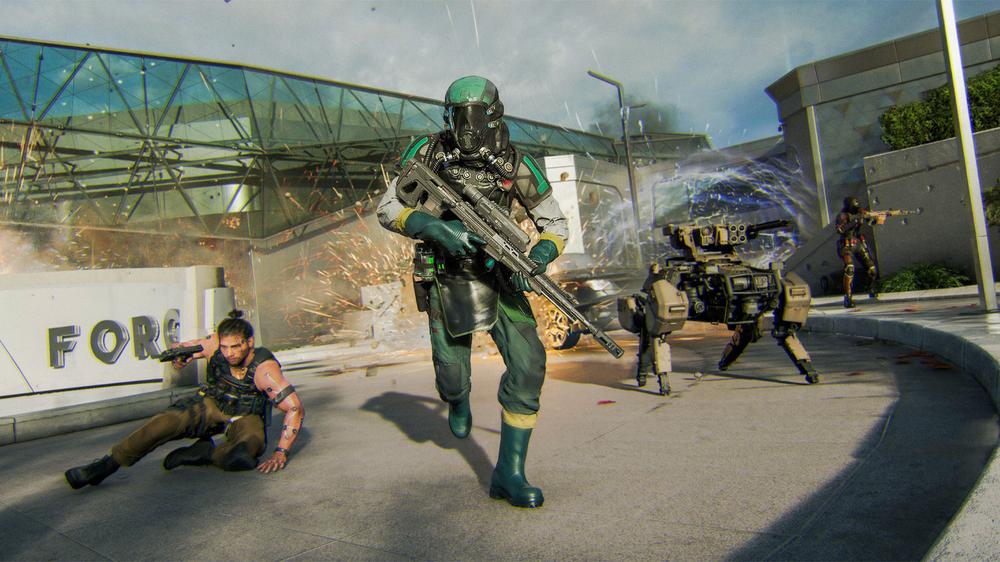Key developments on Aug. 19:
- US troops won't be sent to Ukraine as part of security guarantees, Trump says
- Zelensky, Putin may meet within 2 weeks, German chancellor says
- Zelensky outlines $90 billion US arms deal as part of Ukraine's security guarantees
- Ukraine repatriates 1,000 bodies of fallen soldiers from Russia
- Ukrainian drones hit oil refinery in Russia's Volgograd Oblast, governor says
Trump said on Aug. 19 that U.S. soldiers will not be on the ground in Ukraine to ensure security guarantees are upheld, deflecting the responsibility to European allies.
When asked on Fox News if there was an assurance to Americans that U.S. soldiers will not patrol Ukraine's front line region, Trump replied: "Well you have my assurance, you know I'm president. I'm just trying to stop people from being killed."
Earlier in the interview, Trump said that European would lead the charge in ensuring security guarantees on the ground.
"We've got the European nations, they'll frontload it," Trump said. "Some of them: France, and Germany, U.K., they want to have boots on the ground."
Following Trump's comments, U.K. Prime Minister Keir Starmer told Sky New that it was "premature" to say that British troops will be sent to Ukraine's front line, adding that the country will nonetheless play their part.
Referring to the progress of ongoing security guarantee negotiations, Finland's Foreign Minister Elina Valtonen told reporters that "there have been no decisions thus far as what comes to the overall framework and neither to the individual contributions" from individual countries' support for Kyiv.
Valtonen added that the "Coalition of the Willing" had not seen anything from Moscow to suggest it is seeking peace in Ukraine.
Trump's comments follow a meeting between the U.S. president, President Volodymyr Zelensky, and European allies on Aug. 18 in the White House, where allies made progress in coming to a consensus on what security guarantees for Kyiv may look like.
WTF is wrong with Russia?
Wear our new T-shirt to let other people know you want answers.
shop now"We'll give them (Ukraine) very good protection, very good security" Trump told reporters during the meeting, after initially not publicly ruling out the possibility of U.S. troops. The U.S. president added that any security agreements would be done in "coordination with the United States."
NATO Secretary General Mark Rutte told Fox News after the meetings that the possibility of sending U.S. or European troops to Ukraine was not even discussed during the meeting.
"That will be part of the discussions, which will now start. We will try to bring them to the next stage of understanding over the coming days and weeks, of course," Rutte said.
European officials later confirmed to the Kyiv Independent that a series of meetings among the participant countries of the "Coalition of the Willing" could take place in the coming days to hash out the details.
During the meeting, European leaders overwhelmingly expressed support for providing "Article 5-style" security guarantees, with U.K. Prime Minister Keir Starmer, who co-chairs the Coalition fo the Willing, calling the meeting a potential "historic step" for both Ukrainian and broader European security.
The other co-chair, French President Emmanuel Macron, said that security guarantees will consist of a strong Ukrainian army, adding that European allies were "prepared to step up to the plate."
Commenting on his outlook for his country's own security, Zelensky said the first part of these guarantees for Ukraine should be its own "strong army." The second part is a package of American weapons, with Zelensky telling reporters that Ukraine has proposed buying U.S. weapons worth $90 billion as part of the guarantees.
As part of the next steps of the negotiation process, Zelensky and Russian President Vladimir Putin could meet within the next two weeks to discuss territory claims, with plans for a trilateral meeting mediated by Trump afterwards.
Trump and Putin met in Anchorage, Alaska, on Aug. 15 for nearly three hours but failed to reach a ceasefire agreement. Trump later said "many points were agreed to" but offered no specifics.
The last time Zelensky and Putin met in person was in Paris in December 2019 during the Normandy Format talks mediated by France and Germany. They have not held direct talks since the start of Russia's full-scale invasion in February 2022.
Zelensky, Putin may meet within 2 weeks, German chancellor says
Zelensky and Putin could meet within the next two weeks, German Chancellor Friedrich Merz said on Aug. 19, according to Reuters.
Merz, who traveled to Washington with Zelensky and other European leaders on Aug. 18, said the agreement emerged after Trump called Putin during a break in the talks.
"The American president spoke with the Russian president and agreed that there would be a meeting between the Russian president and the Ukrainian president within the next two weeks," Merz said.
According to AFP, Putin told Trump he was willing to meet Zelensky.
Whether Putin will follow through remains uncertain, and "persuasion is needed" to ensure the Russian leader attends, Merz said.
Zelensky has repeatedly voiced readiness for direct talks. On Aug. 18, he said he was prepared to discuss territorial issues directly with Putin as part of peace talks.
Putin, while claiming openness to negotiations, had previously refused to meet Zelensky.
"The question of territory is a question that we will leave between me and Putin," Zelensky said.
The last time Zelensky and Putin met in person was in Paris in December 2019 during the Normandy Format talks mediated by France and Germany. They have not held direct talks since the start of Russia's full-scale invasion in February 2022.
Zelensky outlines $90 billion US arms deal as part of Ukraine's security guarantees
Ukraine has proposed buying U.S. weapons worth $90 billion as part of security guarantees, Zelensky said during a briefing in Washington on Aug. 18.
Previously the Financial Times reported that Kyiv had proposed buying $100 billion worth of American weapons, financed by its European partners.
Commenting on the issue of security guarantees, Zelensky said the first part of these guarantees for Ukraine should be its own "strong army." The second part is a package of American weapons.
"There is indeed a package with our proposals for $90 billion," Zelensky said. "This is the second part of the security guarantees for us. The third part is our drone production."
The plan aims to secure U.S. security guarantees and anchor Washington's long-term commitment to Ukraine. By tying its defense needs to a major boost for U.S. industry, Kyiv hopes to turn its request into an investment opportunity that appeals directly to American interests.
The proposal also includes a separate $50 billion agreement for producing drones with Ukrainian companies. Ukraine has been at the forefront of drone technology since the start of the full-scale Russian invasion in 2022. The document seen by FT doesn't specify which weapons Ukraine would buy, but it has previously expressed a desire for at least 10 U.S.-made Patriot air defense systems.
These proposals were shared with European allies before a meeting with Trump at the White House. The initiative aims to appeal to Trump's focus on supporting American industry, a point he highlighted when he said, "We’re not giving anything. We’re selling weapons."
The document outlines Ukraine's counter-proposal to Trump's Aug. 15 meeting with Putin in Alaska, where Trump appeared to align with Russia's position on ending the war. Ukraine's plan reiterates its call for a ceasefire, which Trump had initially supported before shifting his stance.
German Chancellor Friedrich Merz, speaking at the White House meeting with Trump and Zelensky, stressed the importance of a ceasefire before any further steps. "I can’t imagine that the next meeting would take place without a ceasefire," he said. "So let’s work on that and let’s try to put pressure on Russia because the credibility of these efforts we are undertaking today depends on at least a ceasefire."
The document also specifies that a "lasting peace shall be based not on concessions and free gifts to Putin, but on (a) strong security framework that will prevent future aggression." It also notes that recent Russian media content suggests the Kremlin is not serious about peace and holds a low opinion of Trump.
Ukraine maintains it will not accept any deal that involves territorial concessions to Russia. It insists on a ceasefire as the necessary first step toward a comprehensive peace agreement.
The document also rejects Putin's proposal to freeze the front line in exchange for Ukraine withdrawing troops from the occupied Donetsk and Luhansk oblasts, arguing that this would "create a foothold for a further and rapid advance of Russian forces towards the city of Dnipro" and allow Putin to "achieve the goals of aggression by other means."
Kyiv believes that attempting to settle territorial issues before discussing a lasting peace would establish a "fait accompli" on the ground without addressing Ukraine's long-term security.
The document also insists that Russia must provide full compensation for wartime damages, potentially using the $300 billion in frozen Russian sovereign assets. It adds that any sanctions relief should only be granted if Russia "plays (a) fair game" and complies with the future peace agreement.
Ukraine repatriates 1,000 bodies of fallen soldiers from Russia
The bodies of 1,000 Ukrainians have been returned from Russia as part of repatriation efforts, Ukraine's Coordination Headquarters for the Treatment of Prisoners of War said on Aug. 19.
According to Russian authorities, the remains belong to Ukrainian servicemembers killed in action in Donetsk, Zaporizhzhia, Luhansk, and Kursk regions.
Among them are five soldiers who died in Russian captivity. They had been listed as "seriously wounded and seriously ill" and were slated for exchange under the Istanbul agreements.
Ukrainian law enforcement and forensic experts will now carry out examinations to identify the bodies.
Russian state news agency TASS reported that Ukraine also returned the remains of 19 Russian servicemembers.
The announcement follows a broader June 2 deal struck in Istanbul, under which Russia and Ukraine agreed to repatriate around 6,000 bodies of fallen Ukrainians. That exchange concluded on June 16, with 6,057 bodies returned to Ukraine in several phases.
"Ukraine insists on the immediate release of all seriously ill and severely wounded prisoners and is fighting for the return of all Ukrainian citizens," the Coordination Headquarters said.
The development comes days after Zelensky announced on Aug. 14 that 84 soldiers and civilians had been freed in a new prisoner swap with Russia.
Since March 2022, Ukraine has secured the release of over 5,000 people from Russian captivity, though Moscow continues to reject Kyiv's calls for an "all-for-all" exchange formula.
Ukrainian drones hit oil refinery in Russia's Volgograd Oblast, governor says
Ukrainian drones struck an oil refinery in Russia's Volgograd Oblast overnight on Aug. 19, regional governor Andrei Bocharov said.
The refinery, Russian oil company Lukoil's second-largest, is a major producer of petroleum products in Russia's Southern Federal District. According to Bocharov, a fire broke out at the site following the attack.
Residents told Russian pro-government media outlet Shot that they heard between four and 10 explosions, with drones flying at low altitude and bright flashes visible in the night sky.
Russia's Defense Ministry claimed 13 Ukrainian drones were shot down over the region.
Lukoil's Volgograd refinery, which has an annual capacity of 14.8 million tons, had already been forced to halt production after earlier strikes on Aug. 13-14. Reuters reported on Aug. 18 that the damaged units together accounted for the plant's entire refining capacity.
Volgograd Oblast, along the lower Volga River, is roughly 470 miles (290 kilometers) from Ukraine-controlled territory and shares a border with Kazakhstan to the southeast.
The extent of the damage is not yet known. Ukraine has not commented on the attack.
Ukraine has repeatedly used long-range drones to strike industrial and military targets deep inside Russia, focusing in particular on oil infrastructure that fuels Moscow's war effort.
At least three Russian refineries suspended or cut operations this month due to such attacks, including Rosneft's Saratov facility and refineries in Ryazan and Novokuibyshevsk.

 Black Ops 7 has 16 6v6 maps at launch with three BO2 remasters
Black Ops 7 has 16 6v6 maps at launch with three BO2 remasters